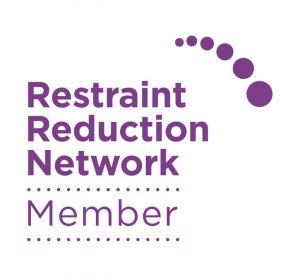PHILOSOPHY
Insight operates under 4 core values which inform the larger elements of service delivery.
- Compassion: We prioritise empathy, understanding, and kindness.
- Adaptability: We embrace change, adapt quickly with an open-mind, and resilience.
- Collaboration: We will create inclusive and respectful environments where diverse perspectives are valued, supporting people to work together.
- Integrity: We uphold honesty, transparency, and ethical behaviour.

Person Centered Active Support (PCAS)
Our service is underpinned by firstly the declared belief that all people with learning disabilities irrespective of the degree of learning disability or challenging behaviour are capable of substantial growth and development, and that this continues throughout life. Insight strives to do this by applying a model defined as Person Centered Active Support.
Insights mission is therefore to provide each individual with the sufficient support needed to enable participation in all ordinary life opportunities for activities and relationships. Insight believes that every individual should be provided with opportunities for contribution, even when they do not hold all of the skills needed (Mansell et al, 2005). Insight aim for all individuals to be supported in a way that enables them to engage in meaningful activities which inevitably provide experience of variety in life and the opportunity for real and informed choices. The four key principles of Person-Centered Active Support are:
- Every moment has potential
- Graded assistance
- Little and often
- Choice and control
The application of Person-Centered Active Support allows for typical day opportunities to become learning experiences. Staff at insight are therefore provided with training to identify opportunities for learning and skill building, and to provide each individual with the right level of support and at the right time, to enable development in each individuals’ skills, independence and experiences.
Person Centered Planning
Person-centred care can be thought about as a life philosophy –an aspiration about being human and celebrating uniqueness and our own ‘personhood’ (Sheard, 2004). Insight holds the philosophies and values identified within the valuing people article to increase inclusion within communities, to enable choice in all aspects, to develop and maintain relationships and to improve and develop skills.
Insight always aim to emphasize sound behavioural support strategies based upon an individual’s needs whilst adopting a proactive approach to the individuals we support. This is applied through person centered planning, which is a way of helping someone to plan their life and support, focusing on what’s important to the person. Person-centred planning has five key features:
- the person is at the centre of the planning process
- family and friends are partners in planning
- the plan shows what is important to a person now and for the future and what support they need
- the plan helps the person to be part of a community of their choosing and helps the community to welcome them
- the plan puts into action what a person wants for their life and keeps on listening
Person-centred thinking is as important as the planning. It means that support staff hold person-centred values, and a belief that a person must have control in areas such as who supports them, what they do with their day, being listened to, and making decisions about their lives.
Positive Behavioural Support (PBS)
Positive behaviour support (PBS) is a multi-component framework and evidence-based approach to understanding and reducing challenging behaviours. PBS can be described as an educational, proactive and respectful intervention which not only focuses on reducing challenging behaviour but also focuses on the building of alternative skills and adaptations of problem environments, bringing quality of life outcomes.
PBS can be described as a person-centred, long term approach to supporting people that may be at risk of displaying behaviours that challenge. It consists of a mix of person-centred values and behavioural science and uses evidence to inform decisions. Simply put, PBS is a long term, person centred and evidence-based approach to improving quality of life.
All behaviour happens for a reason and behaviours that challenge are not different, they may be the person’s only way to communicate an unmet need. PBS helps us to understand the reason for the behaviour and so that we can better meet the person’s needs. The approach focuses on:
- understanding the individual and their history
- assessing their social and physical environment to ensure that they are capable and meet the person’s needs
- proactive and preventative approaches that aim to teach skills to replace behaviours that challenge and other general skills to improve quality of life
- input from other professionals in a co-ordinated and person-centred manner
Insight works within a PBS framework, which enables the understanding of the needs of the people we support, and to inform the development of the support mechanisms which develop and maintain positive life outcomes, individuals needs and to develop ways in which Insight can support the individuals to develop and maintain positive life outcomes.
Our mission is to provide adults who have intellectual impairments and additional behaviors that challenge services, the opportunity to achieve meaningful and rewarding lives. Providing a service within valued community settings and supporting people to access generic health, education and leisure facilities within the locality of their home. Empowerment of the people it serves by protecting and valuing their right to individuality, safety and respect.
PRO-ACT SCIPr-UK®
It is the intent of PROACT-SCIPr-UK® to minimize the use of physical interventions and to emphasize sound behavioural support strategies based upon an individual’s needs, characteristics and preferences. The aim of PROACT-SCIPr-UK® is to reduce restrictive practice and using the PBS model to improve people’s quality of life.
Under the PROACT-SCIPr-UK® mission statement, we at Insight employ the PCP model and undertake in the belief that everything should be tailor made to meet individual’s needs. We have 4 fully trained PROACT-SCIPr-UK® trainers, all of whom also hold an advanced professional qualification in Positive Behavioral support. Positive Behavioural support underpins the practice and value base for PROACT-SCIPr-UK®. All staff will receive PROACT-SCIPr-UK® training within their first 3 months and will then attend a yearly refresher.
The practical application of this
Implementation of our support.
We at Insight, adopt the above approaches within our application of support for those living with us. Our philosophies are not only underpinned by our own beliefs in the right for an ordinary, equal life, but are also underpinned by the understanding of PCAS, PCP, PBS & PROACT-SCIPr-UK®. In order to adapt our service for each individual we support, we ensure our support is firstly person centred, with a sound understanding and approach for supporting challenging behaviours which not only reduce challenging behaviour but provide opportunity for the learning of alternative, socially accepted behaviours, in a way which is most ethical and least restrictive. This is implemented through individualised support plans, which are formulated through person centred meetings and comprehensive behavioural assessment, and most importantly, taking into consideration the wishes of the individual. Insight strive to include each individual we support to be as involved in their choices around the type of support they receive as possible, as it is believed that by doing this people are most likely to learn and develop
In order to ensure PCP, PBS & PRO-ACT SCIPukr are modelled within each of our sites, each site has an allocated PCP co-ordinator and PBS practitioner. This ensures all staff are given the correct level of leadership, and that all service users are given the upmost opportunities for bettering their care and their quality of lives.
In addition to this, Insight employ Mentors for those service users who are thought to benefit from paired staffing. This involves including the service user within every step of the recruitment for their Mentor, and alleviates any anxieties around sharing a carer with another service user. This also creates opportunities for powerful rapport building, leading towards increased opportunities for skill building and community inclusion.





